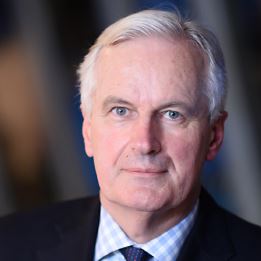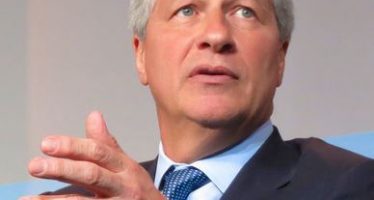Michel Barnier
 His job requires the patience of a saint – and an ability to repeat the message ad nauseam. Michel Barnier (66), the European Union’s chief negotiator in charge of ushering the UK out of the bloc as per its own request, has the unenviable task of telling – and convincing – his British counterpart that the 27 remaining member states are in no mood to grant additional opt-outs or accommodate special requests.
His job requires the patience of a saint – and an ability to repeat the message ad nauseam. Michel Barnier (66), the European Union’s chief negotiator in charge of ushering the UK out of the bloc as per its own request, has the unenviable task of telling – and convincing – his British counterpart that the 27 remaining member states are in no mood to grant additional opt-outs or accommodate special requests.
Burdened by a strictly delineated mandate and not permitted to entertain even the tiniest of deviations, Mr Barnier has precious little wiggle room to offer David Davis, his UK counterpart. Appointed for his formidable skills and long experience in negotiating trade deals, Michel Barnier has so far managed to retain his dignity, only sporadically allowing his frustration to rise to the surface.
The former commissioner for Internal Market and Services (2010-2014) is well-versed in financial regulation. At the European Commission he helped introduce and implement more than forty European laws aimed at tightening up the regulatory framework that governs banks and financial markets in the wake of the 2007-2011 Great Recession. Mr Barnier advocated to cap banker bonuses and limit the short selling of shares.
Mr Barnier landed in Brussels after a career spanning almost three decades in French politics during which he held a number of ministerial posts – Environment, European Affairs, Foreign Affairs, and Agriculture. He reportedly possesses the most comprehensive rolodex of any EU top official with high-level contacts in all of Europe’s 28 capital cities.
Mr Barnier is not universally liked, though – in France some of his opponents dubbed him “The Cretin of the Alps” for the single-mindedness unfailingly displayed when in pursuit of an objective. The dig refers to his Savoy roots and the brain damage suffered by the valley’s inhabitants in the 18th century due to a prolonged iodine deficiency.
A self-described anglophile, Michel Barnier has repeatedly deplored the UK’s decision to exit the European Union – an edifice London helped erect. Paradoxically, Mr Barnier’s well-documented love of all things British causes him to severely dislike the Tory Eurosceptics who pushed the country towards Brexit peddling half-truths and outright lies.
Mr Barnier often lets go of his diplomatic skills when confronted with the pick-and-chose approach towards the EU favoured by some. During a 2013 visit to London, he accused the UK government of selectively implementing the new financial rules, issuing a warning that now sounds ominous: “Repatriating powers [from Brussels to the UK] over financial services would mean leaving the single market and de facto the EU.”
Mr Barnier clashed repeatedly with then-Chancellor of the Exchequer George Osborne over EU-mandated caps on the bonuses paid to bankers, blaming their fast and loose attitude to financial rules for causing the Great Recession. A technocrat with a flair for politics, Mr Barnier knows how to score points by playing his audience.
Though a dealmaker at heart, Mr Barnier time and again insists that the European Union is not interested in pursuing any agreement that enables the UK to enjoy the full benefits of EU membership – unfettered access to its internal market – without also accepting aspects deemed less desirable such as the freedom of movement. Sticking to his guns, the French diplomat insists that the talks in Brussels progress according to the EU’s schedule and remain limited to a few essential topics: the status of EU citizens in the UK, the border between Ireland (a member state) and Northern Ireland (part of the UK), and the financial settlement.
Though Team Britain keeps asking for the EU to deliver the moon, it does raise a valid point when complaining about Mr Barnier’s rather unbendable attitude. What the UK has thus far failed to realise is that the negotiations in Brussels are not at all meant to produce a compromise. Mr Barnier is not looking for the middle ground; he is merely setting down the facts. There is only one Brexit and that sees the UK exiting the European Union and becoming a third country, albeit a friendly one.
You may have an interest in also reading…
Child Bride Hero Nujood Ali
Divorce can be a traumatic experience – but for a ten year old? Nujood Ali, now a fifteen year old
James “Jamie” Dimon: How Not to Be a Good Banker
The CEO, chairman and president of JPMorgan Chase has no shortage of supporters and fans. Just two years ago, James
Waldemar Januszczak: Art for the Millions
The BBC needs a David Attenborough of the arts and Waldemar Januszczak (63) may answer the call. Arguably Britain’s best


















































































